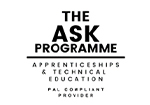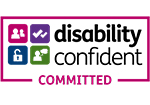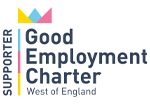You've applied, but what next?
If, like thousands of students, you submitted a medicine application by the early entry deadline of 15th October, the next stage is the wait to see if you will be invited to an interview.
How will I know if I am being offered an interview?
In most cases, you will be notified by UCAS Track, but some universities might send you an email instead. Make sure you check your junk/spam folders regularly, just in case. Contact the universities if you haven’t heard anything by February.
Help! How do I prepare for a medicine interview?
First of all, if you have received an invite to an interview, well done! All of the hard work that you put into your application has paid off – you have made it to the next stage. However, if your initial reaction is joy this might be quickly followed by anxiety. Here we take you through the information you need and the preparation you should undertake to ensure the best chance of success.
What kind of interview could I be offered?
The interview could take the form of a single or panel interview or, as in most cases now, a Multiple Mini Medical Interview (MMI). It should be clear whether the interview will be in person or online.
A single or panel interview is usually about 30 minutes long and you could meet clinical or admissions staff or even a current student. There could be some structured questions or the interview could be more conversational and follow on from the answers you give.
In Multiple Mini Interviews, you would move from station to station meeting different staff at each. Stations usually assess different things – your personal statement, ability to work with others, knowledge of medical issues and so on. There could be some scenarios with role playing too. Typical time at each station is usually about 5 minutes.
In the MMI scenario, treat each interview station as a separate ‘stand-alone’ interview. You will do less well at one interview station, everyone does, so put it behind you and move on to the next. Do not fall into the trap of self-sabotage!

When will interviews be held?
Your interview will be held sometime between November and March which could give you more preparation time for some interviews than others. If you have been invited to an in-person interview, make sure you know the time and location and plan your journey to allow plenty of time to avoid delays.
What preparation should I do?
The answer is quite a bit! We advise that you should aim to cover the following areas:
- Prepare to talk about what has influenced you to study medicine and become a doctor
- If you have an interest in a particular field, think about how you will talk about this. See this list of doctor roles and specialities for inspiration
- Get clear on why you want to study at a particular medical school
- Reflect on your work experience journal and what you learnt. Be ready to talk about what your experiences taught you
- Be prepared to show your intellectual curiosity and academic suitability for studying medicine. Think about relevant topics in your sixth form subjects, read some medical articles or take some short online courses to deepen your knowledge and interest medical issues. Use our Beyond the Syllabus: Prepare for Medicine Guide to access to a range articles, podcasts, webinars and books
- Find out about some of the current issues facing the NHS or any recent scientific breakthroughs. Check BBC News, medical journals and national newspapers for the latest news
- Reflect on any other experiences that have helped you to develop the wider skills and attributes that doctors need to have such as resilience, ability to interact with others or cope with pressure
- Prepare to discuss some of the clinical and ethical decisions doctors might need to make - you could draw on what you learnt in your work experience placements

How else can I prepare for medicine interviews?
There is a vast array of courses which claim to help you get into medical school but none can 100% guarantee success. It is sensible to prepare and there are a number of reputable online resources and information, for example The Medic Portal and I-Medics have great free resource banks of questions. I-Medics also offer free online information sessions, run by doctors, which are usually advertised on LinkedIn.
Some schools and colleges will provide mock interviews and our careers team often run these, but if your school doesn’t have these, then organise your own interviews with other students. Interview practice helps everyone, even if they are not intending to study medicine. This activity will also look good on your application as an example of leadership, teamwork and initiative!
What else do I need to consider?
On the day, if you are attending an in-person interview, you should assume you are being assessed for your suitability for medicine from the moment you enter the building. A polished interview performance counts for little if inappropriate behaviour and attitude is observed outside the interview situation.
Do your homework: there is a possibility you will be asked why that particular medical school in that particular location. Don’t tell Bristol University for example that the course appeals because it focuses on problem-based learning (PBL) and you’d like the opportunity to visit the only Selfridges store outside London: you will be wrong on both counts. (This was a real answer given by an applicant to Bristol!)
What about online medicine interviews?
Virtual interviews became common during the pandemic and one or two universities might prefer the convenience of these and you could benefit from saving on travel and accommodation costs.
For single or panel interviews you would be invited to a meeting room and the university will usually provide details of what software they are using – Zoom, MS teams etc. Make sure you read any instructions they provide very carefully.
In advance you should set up your phone, tablet, pc or laptop so the camera is at eye level and ensure that your head and shoulders are in view. This means putting some distance between you and the display. You should also practice talking and looking at the camera rather than at the person on screen as this gives the impression of eye contact and in turn this can create good rapport with the interviewers.

What’s an asynchronous online interview?
Here, instead of meeting your interviewers, your answers to questions are recorded and there is no interaction. The asynchronous interview is commonplace in graduate interviews and some practice can pay off as the format can feel unnatural. You might be given a couple of minutes to prepare an answer to each question. To ensure you remember the points you want to talk about, quickly jot information onto post it notes and stick these around your screen. You can glance at these when you are talking.
And after the interview? What then?
First of all, well done for getting through your interview! Now take some time to write down what went well and what didn’t, so you can prepare for the next one.
Make sure you don’t share the questions with other students. Universities want to give equal consideration to all candidates with no unfair advantages given to anyone.
When all candidates have been interviewed, universities will add up the scores of the interview performance and add these to other scores from your academic qualifications, admissions tests and personal statement. They will offer places to the highest scoring candidates. Be warned - some universities take a long time to reach their decision so you will need to be patient!
What if I don’t receive an offer for medicine?
Medicine is extremely competitive and if you don’t receive an offer, try not to take it too personally. If you get the grades, you could reapply next year and use the time to build up some additional experience. You can contact universities to see if they can provide any feedback on why you didn’t make the cut the first time round and this gives you the chance to work on any weak areas. Lots of applicants re-apply after receiving their A level grades (or equivalent), so rest assured you will not be alone.
I have an offer but I didn’t get the grades required, what now?
First call the university as they could still offer you a place if someone else drops out. If you are not successful, find out if the university will allow you to resit your exams and apply next year. Most will, but some might require higher grades second time round, so make sure you know. Some institutions will allow you to apply twice, some more than that. You just need to check on a case-by-case basis.
If you don’t want to resit, there are Preliminary Year and Gateway Year courses that have lower grade entry requirements, so these could be another option for the next application cycle (but check your eligibility as some have strict rules on who can and can’t apply). Finally, there are Graduate Entry course options, but bear in mind that if you are studying medicine as an undergraduate degree after a degree in another subject, you won’t be eligible for any student finance.
How careers advice and guidance can help
You will have a lot to weigh up and prepare if you are applying to medicine and want to succeed in the interview process. Our FutureSmart Careers advisers are experts in medical school applications and can work with you to weigh up the options and get ready for the application process. Timely careers advice and guidance can help with decision making and also supply crucial information to help you succeed. If you want to reach out to one of our advisers, please contact us at enquiries@futuresmartcareers.co.uk or find out whether our advisers are visiting your school.



 0330 311 9509
0330 311 9509 






 0330 311 9509
0330 311 9509









